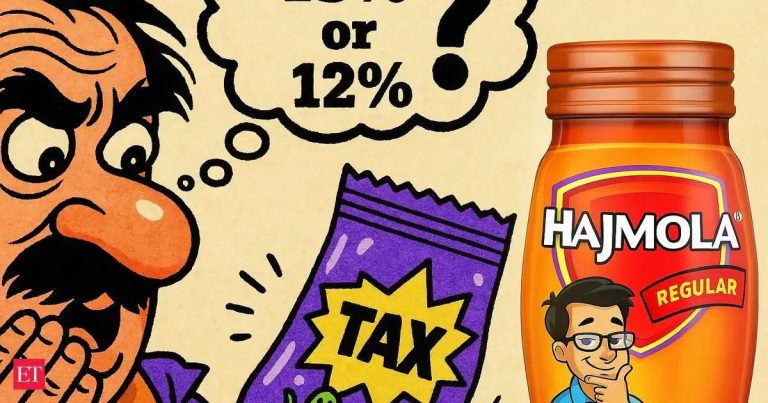
Inside the Alarming Rise of Digital Gambling Addiction | Image Source: relevantradio.com
WASHINGTON, D.C., April 1, 2025 – What once required a casino floor, flashing neon and flea cells have now been condemned in something as simple and omnipresent as the smartphone app. With the 2018 Supreme Court decision in Murphy v. NCAA opening the doors of legalized sports betting, the game underwent a seismic transformation in the United States. Now, with the comfort of mobile platforms, the game is no longer an occasional indulgence – it is a 24/7 temptation anchored in the palm of our hands. Although this transition has undoubtedly enriched the gambling industry, it has also created a vast and largely invisible crisis: a dramatic increase in gambling dependency, especially among vulnerable populations.
According to data provided by the New York State Game Commission, problems-related appeals to government services jumped by 26% between 2021 and 2022. And it’s just the tip of the iceberg. An impressive 23% increase in online research on gambling dependency over the past five years reflects growing public concern and nearly one in ten U.S. households are now actively participating in online gambling. For millions, it is not a harmless bet in a football game, it becomes a destructive habit that undermines relationships, finance and mental health. This article examines how we get here, who is affected, and what can be done to push against the darkest side of the digital game.
How has mobile bet been spread?
The answer lies in a mixture of regulatory relaxation, technological innovation and aggressive marketing. In 2018, the U.S. Supreme Court dismantled the Professional and Amateur Sports Protection Act (PASPA), giving states the power to legalize and regulate sports games. What followed was a rapid proliferation of betting applications such as FanDuel, DraftKings and BetMGM – each competitor for attention in a highly saturated digital market.
Once limited to casinos and race tracks, the game now lives in our pockets. With a few keys, anyone can bet on everything, from NFL games to ping pong games at night in Eastern Europe. Like Les Bernal, National Director of Stop Predatory Gambling, put him on the Drew Mariani Show, it’s not his “Grandma bingo party.” It is “industrial game” wrapped in an elegant UX design and custom algorithms that follow each movement.
“These companies don’t want a friendly bet,” Bernal said. “They want to keep you in action 24 hours a day. Play table tennis in Belarus at 2:00 pm – this is not entertainment. It’s design dependency.”
The consequences? Over $1 trillion in personal wealth projected to be lost in the next five years, according to Stop Predatory Gambling. That’s $300,000 every minute.
Who else is in danger?
The demographic most affected by mobile gambling dependency is alarming: young men in low-income communities. As Charles Faith Lehman, Associate Editor of the City Journal, said, “damage tends to focus on the poorest areas… it’s not only that the damage to the game happens to some people, it often happens to people who can pay the least for it.”
That’s no coincidence. Game applications use sophisticated algorithms to analyze user behavior - how often they bet, what sports they follow, when they place bets – and then exploit these models. Custom push, bonus and even direct contact reports from ‘bet jets’ are implemented to keep users engaged, especially those with addictive behavior.
According to Kevin Winters, founder of Almond Health Digital, a mobile app that helps individuals control game behavior, the real challenge is to create digital tools as attractive as the applications that cause the problem. “The marketing strategies used by these companies are highly oriented and implacable”
Winters said. “To compete, our interventions need to be just as sophisticated — not just informative, but engaging, persistent, and personalized.”
What makes the mobile game so dangerous?
Unlike the traditional game, where the act of going to the casino requires a physical and often premeditated decision, the mobile game is insidiously seamless. You can bet during a lunch break, watching TV, or even in his son’s football game. The inviolable nature of the experiment is precisely what makes it so dangerous. He adds the illusion of “skills” or ”strategy” in fantasy and sports bets micro-bets, and you have a psychological cocktail prepared for addiction.
Impulse control is lower when rewards experience immediate and invisible losses. A few keys on a screen don’t want to deliver in physical liquid. The banking sector in this disconnection – is part of the design. According to The Ticker, public awareness of these behavioural traps remains dangerously low. The algorithms that drive these platforms are built to maximize user engagement, not well-being. They are well adapted behavioural motors to exploit human psychology, especially our vulnerabilities around risk, reward and repetition.
Is that just money?
Absolutely not. The toll is not only financial – it is emotional, relational and spiritual. As Drew Mariani pointed out in his program, teenagers call addiction lines next to their parents. Families separate from increased debt and emotional stress. ”The Church does not directly condemn gambling”
Drew reminded listeners. “But when it robs people of what they need to live or harms others, it becomes morally unacceptable.”
We have reached a point where addiction to gambling affects all aspects of a person’s life – forced marriages for secrecy and debt, careers threatened by coercion, and mental health deteriorates under shame and guilt. Worse still, young people are introduced to the game before being allowed to drink legally. Your understanding of risks is still growing, but they are already concentrated by high content ads and free bets.
What is being done at the policy level?
Some Governments of States have begun to recognize the magnitude of the problem. In New Jersey, the Speaker of the Senate, Nicholas Scutari, recently proposed a bill to create a court of reference for gambling. Its rationality is based on data: as it increases access to the game, also the risk of disorderly behavior. According to the CDC Gaming Reports, state legislators are beginning to feel pressured not only to finance treatment, but also to regulate how gambling is marketed and accessible, especially by minors.
Yet regulation remains a patch. While some States have robust programs, others offer just over 1,800 direct lines buried in demand conditions. The industry, with billions of profits, has little incentive to change. It is up to legislators to promote reforms that include transparency in algorithmic objectives, mandatory features of self-exclusion and limits of notifications in demand and bonus triggers. More importantly, schools and community centres need to integrate digital financial literacy into their curricula, with a focus on mobile gambling risks.
What can individuals and families do now?
Start with consciousness. Recognizing problematic game signs, such as secrecy, escalation of financial losses or mood changes related to victories and losses, can help to respond quickly. Tools such as the Almond Health app provide users with a way to track their habits, set limits and discreetly access resources. Families should encourage open conversations about money and digital temptations, especially with teenagers who can play online games or fanciful leagues without recognizing the risks.
Community groups and religious institutions can also play a powerful role. The Church, as Drew Mariani points out, has a long-standing moral framework around the game that prioritizes human dignity. Talking about the game in moral and relational terms – not only economic – helps to rethink the conversation in a more holistic way. And for those who are already fighting, professional advice, support groups and even credit advice can be essential to return to stability.
More importantly, citizens must demand more than decision-makers. The current system has given priority to public health benefits. By communicating with representatives and advocating meaningful regulation, transparency and education, individuals can be part of the setback against an industry that benefits from pain.
Ultimately, the fight against addiction to mobile gambling is not about banning applications or demonizing technology. The goal is to strengthen the resilience of individuals, families and communities. It is about asking uncomfortable questions, holding industries accountable and remembering that what is at stake is not just money, but human life and relationships.
So before you put the next bet on your phone, maybe take a beat. Ask yourself, who really benefits? And what can it cost you in the long run?






